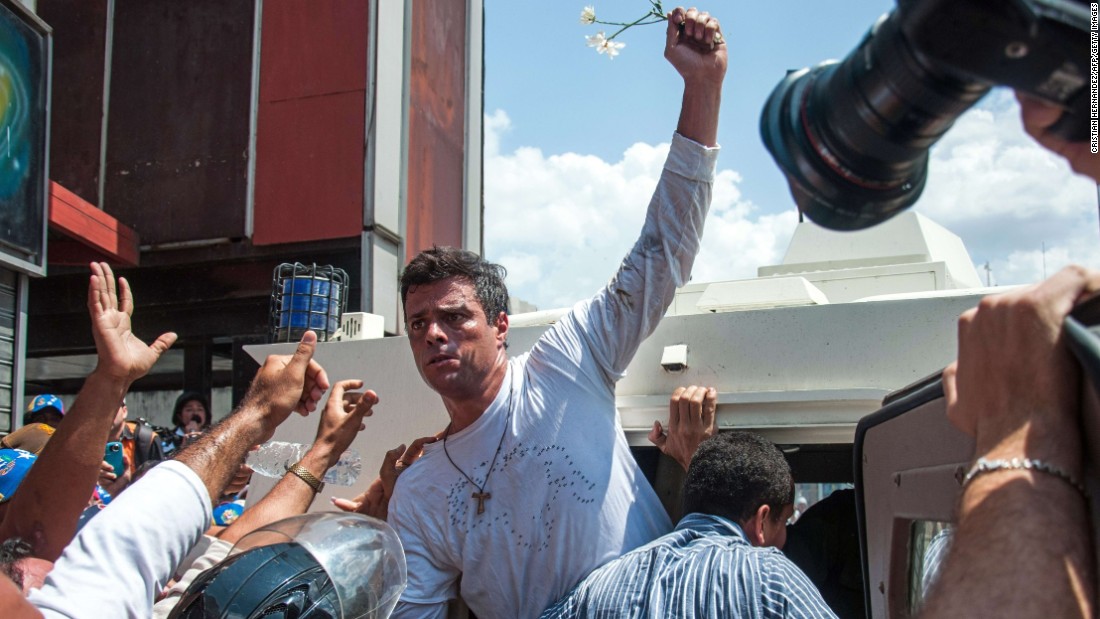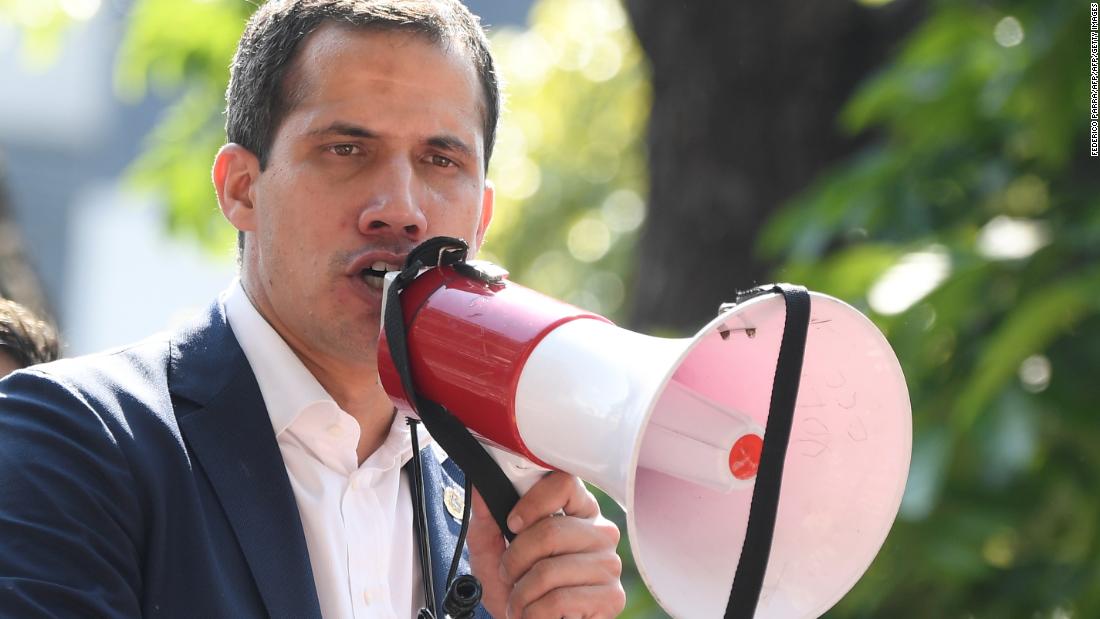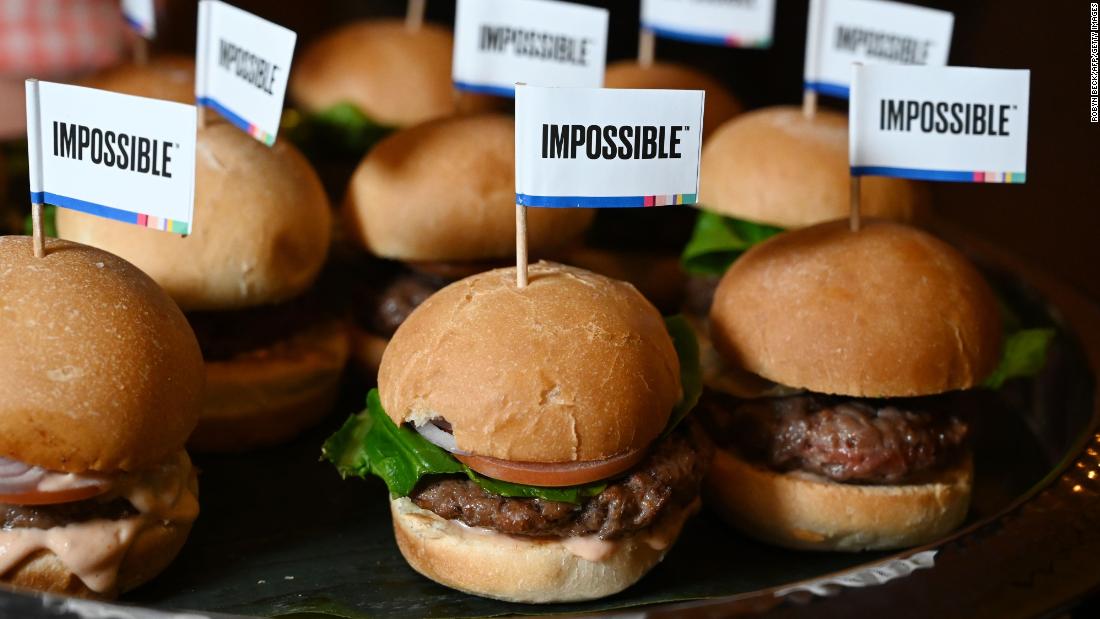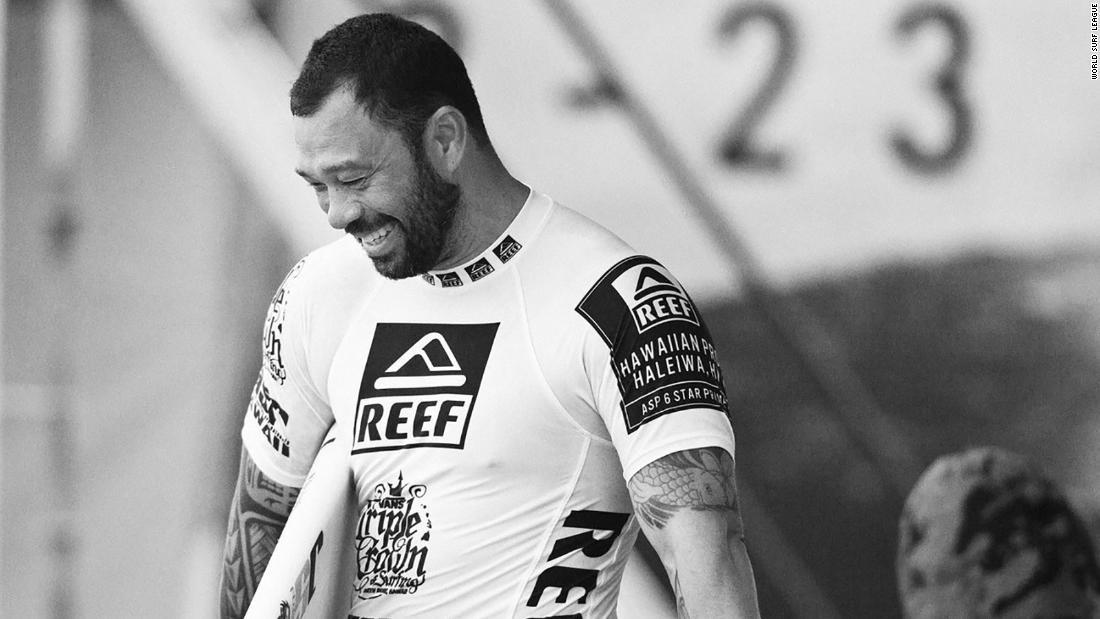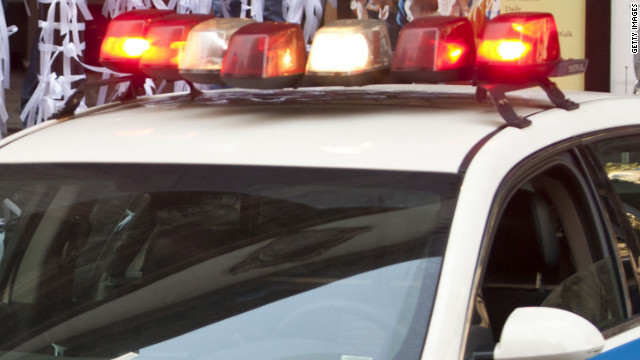May 1, 1992 - King makes an emotional plea for calm, "People, I just want to say, can we all get along? Can we get along? Can we stop making it horrible for the older people and the kids?"
August 4, 1992 - A federal grand jury returns indictments against Koon, Powell, Wind, and Briseno on the charge of violating King's civil rights.
April 17, 1993 - Koon and Powell are convicted for violating King's civil rights. Wind and Briseno are found not guilty. No disturbances follow the verdict.
August 4, 1993 - US District Court Judge John Davies sentences both Koon and Powell to 30 months in prison. Powell is found guilty of violating King's constitutional right to be free from an arrest made with "unreasonable force." Koon, the ranking officer, is convicted of permitting the civil rights violation to occur.
April 19, 1994 - The federal court awards King $3.8 million in compensatory damages in a civil lawsuit against the City of Los Angeles. King had demanded $56 million, or $1 million for every blow struck by the officers.
June 1, 1994 - In a civil trial against the police officers, a jury awards King $0 in punitive damages. He had asked for $15 million.
1992 - Detroit - Malice Wayne Green
November 5, 1992 - Two white police officers approach Malice Wayne Green, a 35-year-old black motorist, after he parks outside a suspected drug den. Witnesses say the police strike the unarmed man in the head repeatedly with heavy flashlights. The officers claim they feared Green was trying to reach for one of their weapons. Green dies of his injuries later that night.
November 16, 1992 - Two officers, Larry Nevers and Walter Budzyn, are charged with second-degree murder. Sgt. Freddie Douglas, a supervisor who arrived on the scene after a call for backup, is charged with involuntary manslaughter and willful neglect of duty. Another officer, Robert Lessnau, is charged with assault with intent to do great bodily harm.
November 18, 1992 - The Detroit Free Press reports that toxicology tests revealed alcohol and a small amount of cocaine in Green's system. A medical examiner later states that Green's head injuries, combined with the cocaine and alcohol in his system, led to his death.
August 23, 1993 - Nevers and Budzyn are convicted of murder after a 45-day trial. Lessnau is acquitted. Nevers sentence is 12 to 25 years, while Budzyn's sentence is eight to 18 years. The charge against Douglas had been dismissed before the trial.
2006 - Nevers' book about the incident and the trial, "Good Cops, Bad Verdict: How Racial Politics Convicted Us of Murder," is published.
1997 - New York - Abner Louima
August 9, 1997 - Abner Louima, a 33-year-old Haitian immigrant, is arrested for interfering with officers trying to break up a fight in front of the Club Rendez-vous nightclub in Brooklyn. Louima alleges, while handcuffed, police officers lead him to the precinct bathroom and sodomized him with a plunger or broomstick.
August 15, 1997 - Police officers Justin Volpe and Charles Schwarz are charged with aggravated sexual abuse and first-degree assault.
August 16, 1997 - Thousands of angry protesters, many waving toilet plungers, gather outside Brooklyn's 70th Precinct to demonstrate against what they say is a long-standing problem of police brutality against minorities. Throughout the day, protesters, many of them Haitian, taunt police, chanting, "No justice, no peace." At some times, protesters stand toe to toe with officers watching the protest from behind a barricade, and call the officers racist and fascist.
February 26, 1998 - Volpe, Bruder, Schwarz and Wiese are indicted on federal civil rights charges in Louima's case. A fifth officer, Michael Bellomo, is accused of helping the others cover up the alleged beating, as well as an alleged assault on another Haitian immigrant, Patrick Antoine, the same night.
May 1999 - Volpe pleads guilty to beating and sodomizing Louima. He is later sentenced to 30 years in prison.
June 8, 1999 - Schwarz is convicted of beating Louima, then holding him down while he was being tortured. Wiese, Bruder, and Bellomo are acquitted. Schwarz is later sentenced to 15 and a half years in prison for perjury.
March 6, 2000 - In a second trial, Schwarz, Wiese, and Bruder are convicted for conspiring to obstruct justice by covering up the attack.
September 2002 - Schwarz pleads guilty to perjury and is sentenced to five years in prison. He had been scheduled to face a new trial for civil rights violations but agreed to a deal with prosecutors.
1999 - New York - Amadou Diallo
February 4, 1999 - Amadou Diallo, 22, a street vendor from West Africa, is confronted outside his home in the Bronx by four NYPD officers who are searching the neighborhood for a rapist. When Diallo reaches for his wallet, the officers open fire, reportedly fearing he was pulling out a gun. They fire 41 times and hit him 19 times, killing him.
March 24, 1999 - More than 200 protestors are arrested outside NYPD headquarters. For weeks, activists have gathered almost daily to protest the use of force by NYPD officers.
March 25, 1999 - A Bronx grand jury votes to indict the four officers - Sean Carroll, Edward McMellon, Kenneth Boss and Richard Murphy - for second-degree murder.
February 25, 2000 - The officers are acquitted of state murder charges.
January 2001 - The US Justice Department announces it will not pursue federal civil rights charges against the officers.
January 2004 - Diallo's family settles a wrongful death lawsuit for $3 million dollars.
2005 - New Orleans - The Danziger Bridge shootings
September 4, 2005 - Six days after
Hurricane Katrina devastates the area, New Orleans police officers receive a radio call that two officers are down under the Danziger vertical-lift bridge. According to the officers, people were shooting at them and they returned fire.
-- Brothers Ronald and Lance Madison, along with four members of the Bartholomew family, are shot by police officers. Ronald Madison, 40, who is intellectually disabled, and James Brisette, 17 (some sources say 19), are fatally wounded.
December 28, 2006 - Police Sgts. Kenneth Bowen and Robert Gisevius and officers Robert Faulcon and Anthony Villavaso are charged with first-degree murder. Officers Robert Barrios, Michael Hunter and Ignatius Hills are charged with attempted murder.
August 2008 - State charges against the officers are thrown out.
July 12, 2010 - Four officers are indicted on federal charges of murdering Brissette: Bowen, Gisevius, Faulcon and Villavaso. Faulcon is also charged with Madison's murder. Bowen, Gisevius, Faulcon and Villavaso, along with Arthur Kaufman and Gerard Dugue are charged with covering up the shooting.
April 8, 2010 - Hunter pleads guilty in federal court of covering up the police shooting.
In December, he is sentenced to eight years in prison.
August 5, 2011 - The jury finds five officers guilty of civil rights and obstruction charges: Bowen, Gisevius, Faulcon, Villavaso and Kaufman.
October 5, 2011 - Hills receives a six and a half year sentence for his role in the shooting.
April 4, 2012 - A federal judge sentences five officers to prison terms ranging from six to 65 years for the shootings of unarmed civilians. Faulcon receives 65 years. Bowen and Gisevius both receive 40 years. Villavaso receives 38 years. Kaufman was not involved in the shooting, just the cover up, so he receives a lighter sentence than the others do.
March 2013 - After a January 2012 mistrial, Dugue's trial is delayed indefinitely.
September 17, 2013 - Bowen, Gisevius, Faulcon, Villavaso and Kaufman are awarded a new trial.
April 20, 2016 - Bowen, Gisevius, Faulcon, Villavaso and Kaufman plead guilty in exchange for
reduced sentences. The five officers will serve between three and 12 years in prison, down from their original sentences of six to 65 years.
2006 - New York - Sean Bell
November 25, 2006 - Sean Bell, 23, is fatally shot by NYPD officers outside a Queens bar the night before his wedding. Two of his companions, Joseph Guzman and Trent Benefield, are wounded in the gunfire. Officers reportedly fired 50 times at the men.
December 2006 - Al Sharpton leads a rally in Manhattan, "Shopping for Justice," to protest the shooting.
March 2007 - Three of the five officers involved in the shooting are indicted: Detectives Gescard F. Isnora and Michael Oliver are charged with manslaughter, and Michael Oliver is charged with reckless endangerment.
April 25, 2008 - The three officers are acquitted of all charges.
February 16, 2010 - The Department of Justice announces that it will not pursue federal civil rights charges against the police officers.
July 27, 2010 - New York City settles a lawsuit for more than $7 million filed by Bell's family and two of his friends.
2009 - Oakland, California - Oscar Grant
January 1, 2009 - San Francisco Bay Area Rapid Transit (BART) officer Johannes Mehserle shoots Oscar Grant, an unarmed 22-year-old, in the back while he is lying face down on a platform at the Fruitvale BART station in Oakland.
January 7, 2009 - Footage from station KTVU shows demonstrators vandalizing businesses and assaulting police in Oakland during a protest. About 105 people are arrested. Some protesters lie on their stomachs, saying they were showing solidarity with Grant, who was shot in the back.
January 27, 2010 - The mother of Grant's young daughter receives a $1.5 million settlement in her lawsuit against BART.
July 8, 2010 - A jury finds Mehserle guilty of involuntary manslaughter. At the trial, Mehserle says that he intended to draw and fire his Taser rather than his gun.
November 5, 2010 - Mehserle is sentenced to two years in prison. He will be able to apply 292 days of time served and may be released in seven months. Outrage over the light sentence leads to a night of violent protests.
June 2011 - Mehserle is released from prison.
July 30, 2013 - A federal appeals court rejects Mehserle's claim of immunity. This allows Grant's father to file a civil lawsuit against Mehserle.
July 12, 2013 - The movie, "Fruitvale Station" opens in limited release. It dramatizes the final hours of Grant's life.
July 7, 2014 - The federal jury does not award any damages in the civil lawsuit brought by Grant's father.
2011 - Fullerton, California - Kelly Thomas
July 5, 2011 - Fullerton police officers respond to a call about a homeless man looking into car windows and pulling on handles of cars. Surveillance camera footage shows Thomas being beaten, clubbed and stunned with a Taser by police. Thomas, who was mentally ill, dies five days later in the hospital. When the surveillance video of Thomas's beating is released in May 2012, it sparks a nationwide outcry.
May 9, 2012 - Officer Manuel Ramos is charged with second-degree murder and involuntary manslaughter, and Cpl. Jay Patrick Cicinelli is charged with involuntary manslaughter and felony use of excessive force.
May 16, 2012 - The City of Fullerton awards $1 million to Thomas' mother, Cathy Thomas.
January 13, 2014 - A jury acquits Ramos and Cicinelli. The charges against Wolfe are dropped.
January 23, 2017 - Department of Justice officials announce they will not pursue federal charges against the three officers for civil rights violations.
2014 - New York - Eric Garner
July 17, 2014 - Eric Garner, 43, dies after Officer Daniel Pantaleo tackles him to the ground in a department-banned chokehold during an arrest for allegedly selling cigarettes illegally. Garner is restrained on the ground by several officers. "I can't breathe," says Garner, who has asthma. The incident is recorded via cellphone video. Garner dies later that day.
August 1, 2014 - The New York City Medical Examiner rules Garner's death a homicide.
December 3, 2014 - A grand jury decides not to indict Pantaleo. Protests are held in New York, Washington, Philadelphia and Oakland, California. People chant Garner's last words, "I can't breathe!"
2014 - Ferguson, Missouri - Michael Brown
August 9, 2014 - During a struggle, a police officer in Ferguson fatally shoots an unarmed man, Michael Brown, 18.
August 9-10, 2014 - Approximately 1,000 demonstrators protest Brown's death. The Ferguson-area protest turns violent and police begin using tear gas and rubber bullets to disperse the crowd. Black Lives Matter, a protest movement that grew out of the
Trayvon Martin shooting in 2012, grows in visibility during the Ferguson demonstrations.
August 15, 2014 - Police identify the officer as 28-year-old Darren Wilson. Wilson is put on paid administrative leave after the incident, and he is required to undergo two psychological evaluations before returning to duty. Governor Jay Nixon decides to put the Missouri State Highway Patrol in charge of security.
August 18, 2014 - Governor Jay Nixon calls in the Missouri National Guard to protect the police command center.
November 24, 2014 - A grand jury does not indict Wilson for Brown's shooting. Documents show that Wilson fired his gun 12 times. Protests erupt after the hearing in Ferguson and nationwide.
November 29, 2014 - Wilson resigns from the Ferguson police force.
March 11, 2015 - Ferguson Police Chief Thomas Jackson resigns a week after a scathing Justice Department report slams his department.
August 9-10, 2015 - The anniversary observations of Brown's death are largely peaceful during the day Sunday. After dark, shots are fired, businesses are vandalized and there are tense standoffs between officers and protestors, according to police. The next day, a state of emergency is declared and fifty-six people are arrested during a demonstration at a St. Louis courthouse.
June 20, 2017 - A settlement is reached in the Brown family wrongful death lawsuit against the city of Ferguson. While the details of the settlement are not disclosed to the public, US Federal Judge Richard Webber called the settlement, "fair and reasonable compensation."
2015 - North Charleston, South Carolina - Walter Scott
April 4, 2015 - North Charleston police officer Michael Slager fatally shoots Walter Scott, 50, an unarmed motorist stopped for a broken brake light. Slager says he feared for his life after Scott grabbed his Taser.
April 7, 2015 - Cellphone video of the incident is released. It shows Scott running away and Slager shooting him in the back. Slager is charged with first-degree murder.
September 10, 2015 - Slager's attorneys make the case for him to be released on bond, after court documents reveal new details from the toxicology report, blood analysis and Taser data. The judge declines to release Slater on bond.
October 8, 2015 - The North Charleston City Council approves a $6.5 million settlement with the family of Walter Scott.
January 4, 2016 - Slager is released on a $500,000 cash bond.
May 11, 2016 - A federal grand jury indicts Slager for misleading investigators and violating the civil rights of Walter Scott.
November 3, 2016 - Opening statements begin in Slager's trial.
November 29, 2016 - Slager testifies on the stand.
May 2, 2017 - Slager pleads guilty to a federal charge of using excessive force. The crime is a felony, punishable by up to life in prison. State murder charges against Slager -- as well as two other federal charges -- will be dismissed as part of a plea deal.
December 7, 2017 - US District Court
Judge David Norton sentences Slager to 20 years in federal prison for killing Scott.
2015 - Baltimore - Freddie Gray
April 12, 2015 - Police arrest
25-year-old Freddie Gray on a weapons charge after he is found with a knife in his pocket. Witness video contains audio of Gray screaming as officers carry him to the prisoner transport van. After arriving at the police station, he is transferred to a trauma clinic with a severe spinal injury. He falls into a coma and dies one week later.
April 21, 2015 - The names of six officers involved in the arrest are released. Lt. Brian Rice, 41, Officer Caesar Goodson, 45, Sgt. Alicia White, 30, Officer William Porter, 25, Officer Garrett Miller, 26, and Officer Edward Nero, 29, are all suspended.
April 24, 2015 - Baltimore police acknowledge Gray did not get timely medical care after his arrest and was not buckled into a seat belt while being transported in a police van.
April 27, 2015 - Protests turn into riots
on the day of Gray's funeral. At least 20 officers are injured as police and protesters clash on the streets. A
video shows police in riot gear take cover behind an armored vehicle, as protesters pelt them with rocks. Gov. Larry Hogan's office declares a state of emergency and activates the National Guard to address the unrest.
May 21, 2015 - A Baltimore grand jury indicts six officers in the death of Freddie Gray. The officers face a range of charges from involuntary manslaughter to reckless endangerment. Goodman, the driver of the transport van, will face the most severe charge: second-degree depraved-heart murder.
September 10, 2015 - Judge Barry Williams denies the defendants' motion to move their trials out of Baltimore, a day after officials approve a $6.4 million deal to settle all civil claims tied to Gray's death.
November 30, 2015 - Porter's trial begins. He faces charges of manslaughter, assault and reckless endangerment. The Baltimore jury is comprised of eight women, five black and three white, and four men, three black and one white. The alternates are three white men and one black man.
December 7, 2015 - Due to a medical emergency, the judge dismisses a juror. The jury is now comprised of seven women, four black and three white, and five men, three black and two white. The alternates are two white men and one black man.
December 16, 2015 - The judge declares a mistrial in Porter's case after jurors say they are deadlocked.
June 23, 2016 - Goodson is acquitted of all charges.
July 18, 2016 - Rice, the highest-ranking officer to stand trial, is found not guilty on all charges. Rice had been charged with involuntary manslaughter, reckless endangerment and misconduct in office.
July 27, 2016 - Prosecutors drop charges against the three remaining officers awaiting trial in connection with Gray's death.
August 10, 2016 - A Justice Department investigation finds that the Baltimore Police Department engages in unconstitutional practices that lead to disproportionate rates of stops, searches and arrests of African-Americans. The report also finds excessive use of force against juveniles and people with mental health disabilities.
April 7, 2017 - A federal judge approves the consent decree and rejects a request from the Justice Department for a 30-day delay to review the agreement.
September 12, 2017 - The
Justice Department announces it will not pursue federal civil rights charges against the six Baltimore police officers.
2015 - Chicago - Laquan McDonald
October 20, 2014 - Chicago police officer Jason Van Dyke shoots and kills Laquan McDonald, 17. McDonald was armed with a 3-inch knife and had the drug PCP in his system, according to toxicology reports. However, he was not menacing anyone up close, standing at least ten feet from the nearest person.
According to a police union spokesperson, an officer told McDonald to drop the knife but he did not comply. Later, an autopsy shows McDonald was shot 16 times.
April 13, 2015 - Federal and state authorities announce that they will conduct a joint investigation into McDonald's death spearheaded by the Chicago branch of the FBI.
April 15, 2015 - The city reaches a settlement with McDonald's family, agreeing to pay $5 million, though the family had not filed a lawsuit.
November 19, 2015 - A judge in Chicago orders the city to release the police dashcam video that shows the shooting. For months, the city had fought attempts to have the video released to the public, saying it could jeopardize any ongoing investigation. The decision is the result of a Freedom of Information Act request by freelance journalist, Brandon Smith.
August 30, 2016 - Chicago Police Superintendent Eddie Johnson files administrative charges against six officers involved in the shooting. Five officers will have their cases heard by the Chicago Police Board, which will rule if the officers will be terminated. The sixth officer charged has resigned.
March 2017 - Van Dyke is indicted on 16 additional counts of aggravated battery with a firearm. The new charges apparently correspond to each shot he fired at McDonald.
June 27, 2017 - Three officers are indicted on felony conspiracy, official misconduct and obstruction of justice charges for allegedly lying to investigators.
October 5, 2018 - Van Dyke is found guilty of second-degree murder and of 16 counts of aggravated battery with a firearm, but not guilty of official misconduct. Though he was originally charged with first-degree murder, jurors were instructed on October 4 that they also could consider second-degree murder.
January 17, 2019 - Cook County Associate Judge Domenica Stephenson
finds three Chicago police officers not guilty of covering up details in the 2014 killing of McDonald. Stephenson's ruling came more than a month after the officers' five-day bench trial ended.
2016 - Falcon Heights, Minnesota - Philando Castile
July 6, 2016 - Police officer Jeronimo Yanez shoots and kills Philando Castile during a traffic stop in Falcon Heights. Castile's girlfriend,
Diamond Reynolds, live-streams the aftermath of the confrontation, and says Castile was reaching for his identification when he was shot.
November 16, 2016 - Yanez is charged with second-degree manslaughter and two felony counts of dangerous discharge of a firearm.
June 26, 2017 - It is announced that the family of Castile has reached a
$3 million settlement with the city of St. Anthony, Minnesota.
November 29, 2017 - The city of St. Anthony announces that
Reynolds has settled with two cities for $800,000. St. Anthony will pay $675,000 of the settlement, while an insurance trust will pay $125,000 on behalf of Roseville.
2016 - Tulsa, Oklahoma - Terence Crutcher
September 16, 2016 - Tulsa Police Officer Betty Shelby fatally shoots Terence Crutcher, a 40-year-old unarmed black man, after his car is found abandoned in the middle of the road.
September 19, 2016 - The Tulsa Police Department releases video of the incident captured by a police helicopter, showing Shelby and other officers at the scene. At a news conference, the police chief tells reporters Crutcher was unarmed. Both the US Department of Justice and state authorities have launched investigations into the officer-involved shooting.
September 22, 2016 - Officer Shelby is charged with felony first-degree manslaughter. The criminal complaint against Shelby says her "fear resulted in her unreasonable actions which led her to shooting" Crutcher. She is accused of "unlawfully and unnecessarily" shooting Crutcher after he did not comply with her "lawful orders."
November 29, 2016 - Shelby is ordered to stand trial for first-degree manslaughter.
April 2, 2017 - During an interview on "60 Minutes," Shelby says race was not a factor in her decision to open fire, and Crutcher "caused" his death when he ignored her commands, reaching into his vehicle to retrieve what she believed was a gun. "I saw a threat and I used the force I felt necessary to stop a threat."
May 15, 2017 - Shelby takes the witness stand in her own defense, testifying that she opened fire because she feared for her life when Crutcher reached into his vehicle to get what could have been a gun. Shelby says the decision to shoot Crutcher stemmed from her police training.
July 14, 2017 - Shelby announces she will resign from the Tulsa Police Department in August.
October 25, 2017 - A Tulsa County District Court judge grants Shelby's petition to have her record expunged.
2018 - Pittsburgh - Antwon Rose II
June 19, 2018 - Antwon Rose II, an unarmed 17-year-old, is shot and killed by police officer Michael Rosfeld in East Pittsburgh. Rose had been a passenger in a car that was stopped by police because it matched the description of a car that was involved in an earlier shooting. Rose and another passenger "bolted" from the vehicle, and
Rosfeld opened fire, striking Rose three times, Allegheny County police says.
June 27, 2018 - The Allegheny County, Pennsylvania,
district attorney charges Rosfeld with criminal homicide in the shooting death of Rose.
March 22, 2019 - After hearing three-and-half days of testimony,
the jury deliberates four hours and finds Rosfeld not guilty on all counts. If convicted, he could have been sentenced to life in prison.
